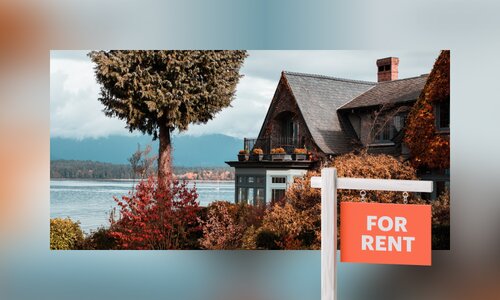Airbnb is an excellent platform for short-term vacation rental property owners. It’s user-friendly, popular, and provides access to a large market of potential renters. But there’s much more to running a successful Airbnb business than publishing a listing.
This quick guide explores the ins and outs of running an Airbnb business. Use it to help determine whether an Airbnb rental is right for you.
What is Airbnb?
Let’s start at the top.
Airbnb is an online marketplace that connects people who want to rent a short-term rental (guests) with vacation homeowners (Airbnb hosts). It makes it easy and safe for prospective guests and hosts. They verify personal profiles and listings. They also help manage messaging and payments between guests and hosts.
An Airbnb rental property can be anything from a spare room in your home to an RV to an oceanfront home. It’s a great way for homeowners to turn an unused space or property into a vacation rental that earns extra income. It’s an excellent way for real estate investors to maximize returns on their short-term rental properties.
What is an Airbnb business?
An Airbnb business is any legal business entity that lists short-term vacation rental properties on Airbnb. It’s that simple. And, as with any business endeavor, owning an Airbnb rental business has pros and cons.
Pros and Cons of an Airbnb business
Airbnb can be a great way to increase your cash flow, but it’s not for everyone. Whether you’re looking for a side hustle or a full-time Airbnb rental, here are some pros and cons of running an Airbnb business.
The pros of an Airbnb business
The pros of running an Airbnb business are the same as owning any short-term rental, but a few additional benefits come with using the Airbnb platform. These include:
1. Access to Airbnb Guests
Airbnb has 5.6 million listings in 100,000+ cities worldwide, hosting over half a billion guests yearly. Hosts access this large pool of potential guests for their Airbnb listing.
2. Airbnb Host Resources
Airbnb has a blog with a few articles to help Airbnb hosts optimize their vacation rental listings. They’ve also built a community where Airbnb hosts can connect and learn from one another.
3. Property Management Tools
Airbnb provides tools to make communication and payments secure for hosts and guests.
The Cons of an Airbnb Business
The cons of running an Airbnb business are like owning a short-term rental but with a few nuances.
1. It’s Hard Work
Many believe running an Airbnb business is as easy as listing an Airbnb property. It’s not. Running a successful Airbnb business is like running any other type of small business. Marketing, managing, promoting, and optimizing your vacation rental takes time and effort. It also requires many startup costs to purchase, furnish, and prepare the Airbnb rental for listing.
2. Airbnb Property Management
As a small business owner, you must promptly respond to guest inquiries and requests. You also must manage all marketing, customer relations, check-in, check-out, cleaning, and maintenance. Airbnb holds hosts accountable for guest complaints. So, it would be best if you were on top of managing your property and keeping guests happy.
3. Local Laws and Taxes
Many cities have specific laws and regulations when it comes to short-term rentals. Some jurisdictions require special permits and licenses to list a property on Airbnb. That’s on top of any homeowner’s association rules. So, you need to do your research and take it to a lawyer before drafting your Airbnb business plan.
Launching an Airbnb business is much like launching any other type of small business. Here are the key steps you need to take to start an Airbnb business.
1. Secure a property in a desirable real estate market
This one seems like a no-brainer, but it’s super important. Not every real estate market attracts tourists. And not every real estate market allows short-term rentals.
A desirable real estate market would be any city with or near known tourist destinations. Think beaches, mountains, landmarks, or festivals that attract visitors all year round.
Once you’ve found a property in a desirable real estate market, the next step is to investigate the local laws and zoning before purchasing your short-term rental property. Why? Some cities have banned short-term rentals. Others have imposed strict regulations, which can be very limiting. You don’t want to purchase a property and then learn you can’t rent it as a short-term rental.
2. Make your Airbnb business legal
Before you list your property, we recommend you consult a business attorney to set your Airbnb business up for success. They’ll help you obtain the legal documents, certifications, and insurance your business needs to operate legally while protecting your personal assets.
For example, you’ll need a business license, business insurance, an EIN for tax purposes, and a business bank account. You’ll also need to ensure your homeowner’s insurance covers short-term vacation rentals.
Many Airbnb hosts set up a limited liability company (LLC) as their legal business entity because it helps protect the real estate investor’s personal assets. It also makes it easier for them to expand because each additional short-term rental property can be under the LLC.
An LLC also allows you to set up a business bank account, get an EIN, and make it easier for your Airbnb business to pay your vacation rental taxes. These include real estate and any local sales tax.
A business lawyer will review all your options and help you set everything up correctly.
3. Prepare your property for listing
This is probably one of the process’s most fun and overwhelming steps. Unlike long-term rentals, short-term vacation rentals must be furnished and ready for guests. Here’s a list of some of the things you’ll need to do to prepare your Airbnb property for listing:
- Repair maintenance issues.
- Set up all utilities, including internet and Wi-Fi.
- Furnish the property. This includes sofas, beds, TVs, linens, dishes, curtains, etc.
- Provide additional essentials like board games and toiletries to help your Airbnb property feel like “home.”
- Deep clean the property.
- Install an Airbnb lockbox so your guests can check themselves in.
- Create house rules and provide straightforward check-in and check-out instructions.
- Invest in high-quality listing photos.
- Consider ways you can customize each guest’s experience. This may be a welcome letter, a small “thank you” gift, or a guestbook for people to sign.
Preparing your Airbnb property for listing can be overwhelming, but it’s essential. You’re competing with other short-term vacation rentals in the area. You want yours to stand out and earn excellent reviews.
4. Determine your nightly rate
This is an important step and one that requires a lot of thought. You want to be affordable and competitive, but you also need to earn a profit. Here are some factors to consider before you set your nightly rate:
- Is it peak or off-season? Your nightly rate will likely fluctuate between them.
- Account for any sales tax in your nightly rate.
- Factor in Airbnb’s fees. They charge a 3% fee of the booking subtotal for most hosts.
- If you decide to accept credit card payments, you need to factor in any fees they may charge.
- Are you going to hire a cleaning service? You’ll want to make sure you charge enough to offset its cost.
All of the factors listed above can cut into your Airbnb income. That’s why it’s essential to consider them when calculating your nightly rate.
5. List and market your Airbnb property
Remember those high-quality photos you had taken when you were preparing your property? Here’s where they come in handy. You will use them to build your brand and market your short-term rental.
Here are some tips to optimize and market your Airbnb listing:
- Write an engaging description that includes information about your unique amenities and the property’s proximity to local attractions.
- Keep your booking calendar up to date.
- Respond to guest inquiries as quickly as possible. It helps ensure they have a positive experience throughout the entire process.
- Ask for reviews after each guest leaves. Social proof is one of the best types of marketing. That’s why Airbnb listings with numerous positive reviews rank higher in the platform’s algorithm.
- Automate as much of the booking process as possible. Airbnb has tools to help.
- Consider sharing pictures of the property on social media and asking guests to share their own. This creates even more social proof and provides free word-of-mouth marketing.
You want your short-term vacation rental to be unique and memorable. Investing the time to optimize your listing will help your property stand out and get more bookings.
6. Manage your Airbnb business
Property management can be one of the most time-consuming aspects of owning a short-term rental property, especially an Airbnb. It only increases as you add more and more rental properties to your portfolio.
Running a successful Airbnb business includes:
- Managing property listings
- Staying on top of property maintenance
- Scheduling bookings and handling cancellations
- Responding to all guest communications
- Providing exceptional guest service
- Organizing cleaning services
- Marketing the Airbnb property
- Ensuring high occupancy rates
- And more!
Managing an Airbnb business requires a lot of time and attention. That’s why many property owners hire a property management company to help. It helps streamline processes but comes with a price tag.
Want to invest in vacation rentals without all the hassle?
Arrived enables anyone to buy shares of rental properties, earn dividends from rental income, and build equity without the hassle. Browse our available properties to start investing in real estate today.









